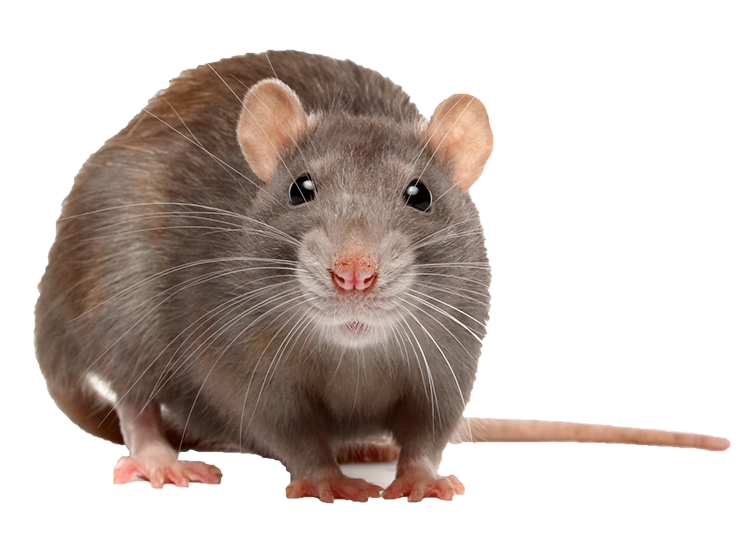Rats are intelligent, curious, and surprisingly tidy creatures. It is no surprise, then, that they can also make great pets! To help your rat live their healthiest and longest life, our veterinarians recommend seeing them at least once a year for a full health assessment. As with any other pet, your rat should be kept under close observation at home so if any changes occur, you can contact us right away. Some signs that your rat may be unwell include decreased appetite, defecating less or not at all, and appearing uncomfortable, hunched over, or quieter than usual.
Age-related Wellness Programs
When introducing a rat to your home, you should prepare an environment that is perfectly suited to their needs.

The following supplies and treatments are important to ensure your rat’s good health:
Rat-specific pellet diet
A roomy enclosure with wire mesh walls
Wooden or paper chew toys
Annual general wellness exams
Spaying/neutering to prevent mammary tumors (males and females)
Rat Care Tips
An appropriate and nutritionally balanced diet for rats includes both rat pellets and fresh vegetables and fruits.
- A quality rat pellet diet contains a minimum of 16% crude protein and 4-5% fat.
- Cereal, fruit, seed, and grain mixes labeled as “rat food” are not recommended. These diets are not nutritionally dense and can lead to obesity and dental issues in rats.
- Our rat veterinarians recommend the Oxbow and Mazuri pellet brands.
- Vegetables and fruits should be offered in small increments of ½ teaspoon per day.
- Processed treats, such as yogurt treats, are not recommended and should only be given sparingly.
- Enclosures for rats should be well ventilated. We recommend an enclosure with wire mesh walls and a solid floor. The space between the wires should be about ½ – 1” to prevent escape on a single-level cage and no more than ¼” x ¼” on higher levels to avoid limb injury.
- In general, the larger the enclosure, the happier and more comfortable your rodent friend will be.
- Paper-based absorbable bedding is recommended to line the bottom of your rat’s cage. Avoid aspen, pine, and cedar bedding materials. Additional levels should be padded with anti-slip mat material to prevent sores from developing on your rat’s feet.
- A full cage cleaning should be done at least once a week, including full replacement of all bedding, water, and food. Make sure all surfaces are disinfected, well rinsed, and air dried before placing your pet back into its home.
- Do not place the enclosure near candles, incense, aerosol products, scented products, aromatic diffusers/essential oils, or heavily scented cleaning products.
- Rats are highly social and intelligent creatures and enjoy interacting with both other rats and people. Spend a minimum of 2-3 hours per day interacting with your rat to keep them well-socialized and strengthen your bond.
- Rats are primarily nocturnal, so they are most active throughout the night. They do, however, adapt to schedules and can frequently be active during the day as well.
- Because they are so intelligent, rats require a lot of stimulation throughout the day. They enjoy staying mentally and physically active by burrowing, climbing, and chewing and do well with hammocks, ropes, and hiding spaces in their cage.
- If you take your rat out of their enclosure, supervise them at all times to prevent injury or unwanted interactions.
- Even though rats are social and do well living with other rats, fights can occur. Monitor multiple rats in the same enclosure and separate them if there are any signs of aggressive behavior.
- Annual exams are important to detect any significant changes in your rat’s health.
- Proper activity, diet, and environment will help to keep your rat healthy for as long as possible.
- Mammary tumors occur in about 30-70% of intact female rats, and in roughly 16% of intact male rats. While the majority of these tumors are benign, appropriate treatment for benign tumors requires surgical removal. Spaying or neutering your rat between the ages of 3 to 5 months reduces the incidence of mammary tumors to less than 6%.


